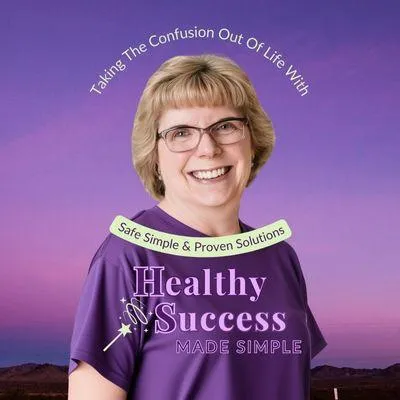Are You A Consumer Looking For
Healthier, Safer,
Effective Affordable Products?
Are You Looking For Ways To Make Money Or Small Business Resources?
Dedicated to our clients’ success
We will defend your rights against powerful interests
Lorem ipsum dolor sit amet, consectetur adipiscing elit. Quisque condimentum ac lorem


From Overwhelmed to Intentional: Rethinking How We Use Time
This is Part 1 of a 3 Part Series.
As we approach the holiday season and 2025, it’s the perfect moment to reflect on how we use our most precious resource—time. While we all have the same 24 hours in a day, the truth is, none of us knows how many days we’ll have in our lifetime. And yet, how often do we stop to consider whether we’re using our time in a way that aligns with both our present needs and our future goals?
The choices we make about how we spend our time shape not only our days but also our health, financial stability, and the life we’re building for tomorrow. Unfortunately, many of us fall victim to myths and misconceptions that cloud our judgment about time.
Let’s unpack three of these myths and begin to shift how we think about the decisions we make each day.
Myth 1: "We Have All the Time in the World"
It’s easy to fall into the trap of thinking there’s always more time. The idea of abundance can make us complacent, leading us to delay decisions or put off opportunities. But time is finite, and procrastination often creates unnecessary stress and limited options.
Take holiday shopping as an example. Waiting until the last minute might mean paying more for gifts that could have been purchased earlier at a discount, settling for something less meaningful due to low inventory, or—worst of all—not giving a gift at all because it’s too late. These consequences aren’t just about shopping; they’re a metaphor for life. Delaying important decisions or actions often forces us to settle for less than we deserve.
Recognizing that time is not unlimited allows us to make more intentional choices. Every moment we spend should be evaluated against its value—not just for today but for the future we’re creating.
Myth 2: "Our Time Doesn’t Really Matter"
We often underestimate the value of our time, especially when the immediate payoff isn’t obvious. But every choice we make reflects what we believe our time is worth. Consider the example of an Uber driver. Their income depends entirely on the hours they put in. If they don’t drive, they don’t get paid. This dynamic often leads to long hours, physical exhaustion, and limited financial security.
Now, think about your own life. Are there areas where you spend your time on activities that don’t align with your goals or bring you closer to the life you want? Whether it’s a job that drains you, habits that don’t serve you, or tasks that could be delegated, the way you allocate your time speaks volumes about how much you value it. You’ve heard the saying ‘We vote with our dollars?’ The truth is we also ‘vote with our minutes & our hours’.
Your time matters. Recognizing its importance is the first step in making decisions that align with your goals and the lifestyle you desire.
Myth 3: "Time Management Equals Doing More, and It’s Harder"
Many people believe that effective time management means cramming more into an already-packed schedule. Worse yet, some think that managing time well makes life harder and more complicated, not easier. The truth is quite the opposite.
Good time management is not about doing more; it’s about doing what matters most. It’s about finding balance—between what’s urgent and what’s important, between today’s needs and tomorrow’s desires. For instance, cooking dinner for your family today is both a necessity and an act of care, but it doesn’t have to come at the cost of ignoring your long-term goals, like learning a new skill or building a side business. Sometimes, the ‘how’ and ‘how often’ we do something make all the difference in the world.
Proactive thinking can help you strike this balance. When you anticipate challenges, pitfalls, and the ‘what could change my plan that is beyond my control’ and plan ahead, you save time and energy in the long run. For example, solving a small/minor issue in a project today can prevent it from turning into a major/significant problem later. Similarly, setting aside time now for personal development can pay off in the form of financial stability and a more fulfilling lifestyle down the road.
The Comfort Zone Trap: Why Short-Term Thinking Holds Us Back
One of the biggest barriers to using time effectively is our reluctance to step outside our comfort zones. It’s natural to want to stick to familiar routines and activities, but this mindset can be detrimental in the long run.
When we focus only on what feels valuable or comfortable today, we often neglect the bigger picture. For example, we might prioritize immediate tasks like answering emails or binge-watching a favorite show over actions that could lead to future growth, like networking, learning a new skill, or starting a passion project.
The reality is this: the choices we make about how we use our time today directly affect the lifestyle we’ll have tomorrow. Staying in our comfort zones might feel safe, but it often leads to stagnation and missed opportunities. Or, even worse, keeping ourselves in the ‘devil we know’ even though we know that is not what we want and definitely not the life we know we deserve.
A Balancing Act: Today’s Needs vs. Tomorrow’s Goals
Using time effectively requires us to balance the demands of today with the dreams of tomorrow. It’s not always easy to shift our focus from immediate tasks to long-term aspirations, but doing so is essential if we want to create a life that aligns with our deepest desires. Ask yourself:
Is this a one-off thing I am consciously doing for ‘today’ even though it isn’t helping me achieve the life I want tomorrow? Or is this a ‘habit’ to keep me safe so I don’t have to face the realities of tomorrow?
If this is an ongoing behavior, is this the best use of my time for long-term results?
Am I prioritizing urgent but not necessarily important tasks while forsaking those things I know are Important to moving me toward the life and lifestyle I truly desire?
Call to Action: Preparing for Next Week
As we close this discussion on the myths of time, I challenge you to take two steps this week to prepare for Part 2 next week:
Self-Assessment: Reflect on how you spend your time. Are there activities you’re prioritizing today that don’t align with your future goals? Identify one area where you could make a shift and one specific shift you will start making this week.
Daily Log: Keep a journal of your time for the next week. Write down what you do, how much time you spend on each activity, and how those activities make you feel. This will help you uncover patterns and highlight areas for improvement.
Breaking free from the myths of time requires both self-awareness and action.
Next week, we’ll dive into how time influences both your Today and your Tomorrow in terms of your physical health, financial wealth and stability, your relationships, and even your mental health—and how, if you really want that life and lifestyle you say you do, how you can need to start making shifts that lead you to that future you desire.



